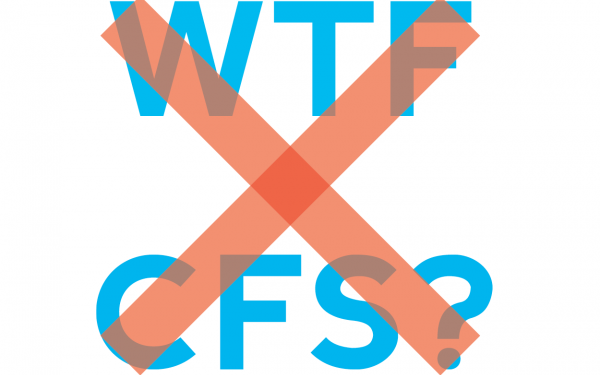Something to Say About the CFS
The Link could have opted to tell you the long and complex story of the Concordia Student Union’s struggle to leave Canadian Federation of Students in our own words, but we thought it might be more effective to let the people who lived through it do so instead.
So, here’s what some of those most closely implicated and involved in the ordeal had to say about it—as it unfolded.
September 2009
Hmm. Something isn’t right. Grumblings of dissatisfaction with Canada’s largest student lobby group—the CFS—surface across the nation.
“I am not knowledgeable on that issue, but I would recommend you check your sources on that.”
—Katherine Giroux-Bougard, former CFS National chairperson, when asked about the 13 petitions that had begun circulating through schools seeking to leave the federation.
“Our members have the right to re-examine our membership in our organization. There has been some dissatisfaction with the CFS-Q and CFS National. I take it this is why the petition is being organized.”
—Greg Johannson, former CFS-Quebec president
October 2009
A petition to leave the CFS, signed by 16.9 per cent of students at ConU, is delivered to the CFS; meanwhile, tensions rise between the federation and many student unions across the country.
“It’s like those in charge of the CFS have lost sight of the interests of their membership and have come to see their own financial interests as synonymous with the goals of the federation.”
—Andrew Haig, former CFS-Quebec treasurer
“This is typical of the CFS National office, who will attempt anything, short of assassinating people, to stop the defederation campaign.”
—Yves Engler, Montreal-based activist and author, open supporter of ConU petition
“Because the petition was calling for a referendum, it wasn’t anti-CFS. It just said, ‘We should have a vote about where our money is going.’ Students were very receptive to the idea.”
—Lex Gill, former CSU president and petition campaign coordinator
November 2009
Yup, we’re still members. The CFS holds its annual general meeting, which sees the controversial “Motion Six” is passed, making it even more difficult to defederate.
“This is not about left or right politics; the problems with the Canadian Federation of Students go across ideology.”
—Dean Tester, Carleton petition coordinator
On Motion Six: “A pretext to throw out the expressed democratic will of over 13,000 students nationwide. It violates the CFS’s own constitution.”
—Andrew Haig, former CFS-Q treasurer
“Fifteen years ago, it was much easier to get in or get out. These constant bylaw changes are an example of autocratic centralism, the absolute antithesis of grassroots democracy.”
—Nicole O’Byrne, constitutional law professor at the University of New Brunswick
“There are no valid reasons for defederation at this time. It will disrupt the unity of the entire student movement of Canada. The CFS is the only real progressive organization; without it, there would be a massive void.”
—Zachary Crispin, committee member of pro-CFS group Progressive Students 4 CFS
December 2009
The CFS held its AGM from Nov. 25 to Nov. 28. This was the second-to-last meeting the ConU delegation would ever participate in.
“It was a week in hell—the only way I can describe this experience is Orwellian. Had we spent anothzer week there, we would have left saying that Big Brother is great.”
—Lex Gill, member of ConU’s delegation at CFS’s AGM
“We were in shock. It was clear that there was an attempt at the plenary to vote down everything that Quebec proposed.”
—Amine Dabchy, former CSU president
“Three hundred delegates were discussing their positions on 90 motions and we tried to make it as welcoming a space for debate as possible.”
—Katherine Giroux-Bougard, former CFS National chairperson
February 2010
The CFS claims the CSU owes them $1,033,278.76 in unpaid dues. The union says otherwise.
“The Concordia Student Union has failed to remit the entirety of these membership dues to the Federation for an extended period of time.”
—David Molenhuis, CFS National treasurer
“When you look at that amount, you can’t believe it. Are you serious? A million dollars? It’s like a couple of them just sat together and chose what seemed like a good number.”
—Amine Dabchy, former CSU president
March 2010
The CSU holds a referendum in which 72 per cent of voting students support leaving the federation.
“The reasons that have been given to leave are not convincing at all; many of them are straight-out lies—the student union’s claim that the CFS is offering nothing to students on campus this year is very misleading.”
—Audrey Peek, head of the “Yes to CFS” campaign at ConU
“[The CFS] don’t care, they don’t care at all. There isn’t anything that we can tell them that is going to get them to change their opinion of the matter. Right now they think they have the upper hand because they think that they can legally bind us. The hardest thing to explain to people is that they are not logical. It’s nonsense after nonsense.”
—Auob Muntasar, former CSU VP External
“I wanted to have a legacy that we quit the CFS.”
—Amine Dabchy, former CSU president
“The matter is pretty simple as far as the federation is concerned: the [student government] has the responsibility to remit fees from all dues-paying members of the union.”
—David Molenhuis, former CFS chairperson, after stating that he could not comment on specifics
April 2010
The GSA holds a referendum. Seventy-five per cent of voters support leaving the CFS.
“The CFS has done everything in its power to be undemocratic.”
—Erik Chevrier, outgoing GSA VP External
June 2010
“We won a referendum to defederate from the CFS—they won’t recognize it. They prepped their members to vote against us at the general assembly. So now we’ll just have to lawyer up and see what happens.”
—Prince Ralph Osei, former CSU president
Post 2010
That’s just a snapshot of all the craziness that went down during the height of the CFS mess.
Since then, things for the CSU and GSA have entered legal territory, which has resulted in diluted bouts of insanity and inevitably has involved lots of waiting.
In 2011, the CSU and GSA served the federation with lawsuits, asking that their referendums be legitimized, and their wish to separate granted.
In 2012, the CFS filed a countersuit to CSU, claiming the union owes them $1.8 million in unpaid fees—though both the CSU and Concordia deny this to be true.
And now, we’re taking them to court (Check out the next page for all the details on how that happened). Until then, you might not hear more than the occasional murmur mentioning the CFS—but be warned, this scrappy battle will be sure to reemerge with a vengeance in the spring of 2015.
Hopefully now you’ll have a better idea of what’s going on when that happens.
‘Til then.





(web)_600_375_90_s_c1.jpg)

